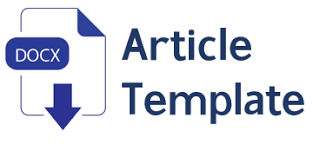Implementation of Investigations and Prosecution by the Corruption Eradication Commission Based on Law of the Republic of Indonesia Number 19 of 2019 concerning the Corruption Eradication Commission
Keywords:
Legal Review;, Media Broadcasting;, Law No. 32 of 2002Abstract
Law of the Republic of Indonesia Number 32 of 2002 concerning Broadcasting (Broadcasting Law) explains the definition of broadcasting in Article 1 paragraph (2) with the words "Broadcasting is the activity of broadcasting broadcasts through broadcasting facilities and/or transmission facilities on land, at sea or in outer space with using the radio frequency spectrum via air, cable, and/or other media to be received simultaneously by the public and the receiving device. The definition of broadcasting in the Broadcasting Law does not mention broadcasting via internet networks/infrastructure or over the top, thus broadcasting via social media platforms is still a question of whether it is subject to the Broadcasting Law or other laws. Regarding this matter, RCTI and iNews TV (MNC Group) submitted a material review to the Constitutional Court which essentially requested that the definition of broadcasting as mentioned in Article 1 paragraph (2) of the Broadcasting Law include providers of over-the-top (OTT) audiovisual services, or internet-based digital platforms such as YouTube, Instagram, or Facebook. RCTI and iNews argue that the request for judicial review of the Broadcasting Law for equality and moral responsibility of the nation is motivated by the desire to provide equal treatment and protection for all Indonesian people. Broadcasting is the activity of broadcasting broadcasts through broadcasting facilities and/or transmission facilities in the air, at sea, or in outer space using the radio frequency spectrum via air, cable, and/or other media to be received simultaneously and simultaneously by the public and broadcast receiving devices. This type of research is Normative research. The approaches used are a statutory approach and a conceptual approach. The data source used is secondary data. Data analysis was carried out descriptively and qualitatively. Concluding is carried out using a deductive method from general to specific to those related to the research issue. Legal Review of Media Broadcasting Activities in the Perspective of Law no. 32 of 2002. This research shows that if we look more closely, Law No. 32 of 2002 concerning Broadcasting has two important spirits, firstly, a broadcasting structure that is free and used solely for services to the community, not the interests of media owners. Second, the spirit of strengthening local entities which includes the spirit of regional autonomy by covering a comprehensive network system extending to the outermost areas. Broadcasting operations in several countries in the world are regulated by the laws and regulations in force in that country. Indonesia regulates broadcasting in Law Number 32 of 2002 concerning Broadcasting (Broadcasting Law).
Published
Issue
Section
Copyright (c) 2024 Riswadi Riswadi, M. Najib Ibrahim

This work is licensed under a Creative Commons Attribution-ShareAlike 4.0 International License.
Authors who publish with this journal agree to the following terms:
- Authors retain copyright and grant the journal right of first publication with the work simultaneously licensed under a Creative Commons Attribution-ShareAlike 4.0 International. that allows others to share the work with an acknowledgment of the work's authorship and initial publication in this journal.
- Authors are able to enter into separate, additional contractual arrangements for the non-exclusive distribution of the journal's published version of the work (e.g., post it to an institutional repository or publish it in a book), with an acknowledgment of its initial publication in this journal.
- Authors are permitted and encouraged to post their work online (e.g., in institutional repositories or on their website) prior to and during the submission process, as it can lead to productive exchanges, as well as earlier and greater citation of published work.




